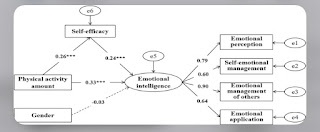Impact of Emotional intelligence on a learners mental well-being
Improving emotional intelligence can have a positive impact on the overall mental well-being of a learner. According to a study published in the International Journal of Management and Social Research, students with high emotional intelligence have better school attendance records, their classroom behavior is more constructive and less often disruptive, they like school more, and are less likely to be suspended or otherwise disciplined. In addition, cultivating emotional intelligence can help students manage negative emotions such as anxiety, boredom, and disappointment that can negatively affect academic performance. According to the Collaborative for Academic, Social, and Emotional Learning (CASEL), students who engage in social and emotional learning (SEL) programs see consistent improvements in social and emotional skills, which contribute to positive lifetime outcomes up to 18 years later. Emotional intelligence is also linked to better mental health, improved social relationships, academic success, and workplace success.
In summary, improving emotional intelligence can lead to several benefits such as improved social and emotional skills, better mental health, improved social relationships, academic success, workplace success, and more. It can also help students manage negative emotions that can negatively affect academic performance.



Comments
Post a Comment